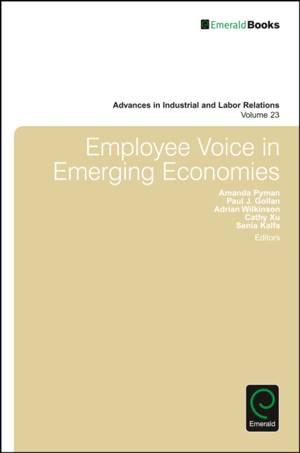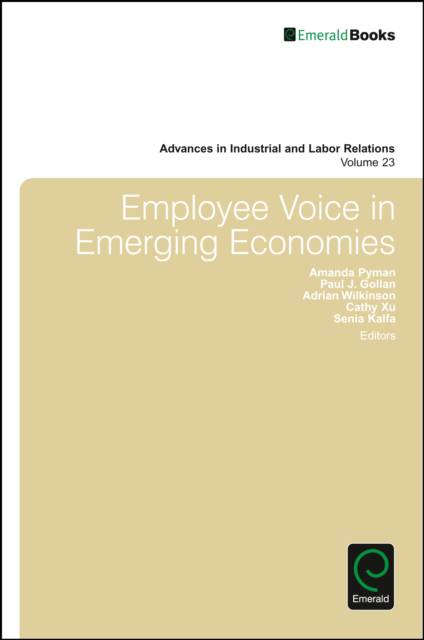
- Afhalen na 1 uur in een winkel met voorraad
- Gratis thuislevering in België vanaf € 30
- Ruim aanbod met 7 miljoen producten
- Afhalen na 1 uur in een winkel met voorraad
- Gratis thuislevering in België vanaf € 30
- Ruim aanbod met 7 miljoen producten
Zoeken
Employee Voice in Emerging Economies
€ 134,45
+ 268 punten
Omschrijving
Within the labor relations paradigm, employee voice is broadly defined as the ways and means through which employees 'have a say' and influence organizational issues at work. Whilst we know much about employee voice in the Anglo-American (developed) world, we know much less about how employee voice operates in emerging economies. This volume explores the nature of employee voice in four emerging economies: Argentina, China, India and South Korea. The volume brings together an internationally renowned group of contributors who are experts in their field and an authority on their countries, to combine cutting edge research and theory in this essential exploration of voice in emerging economies. This volume identifies, inter alia, novel forms and channels of employee voice, new institutional and informal actors, new challenges to social dialogue and representation in emerging economies, and, the importance of cultural norms in predicting employee voice behaviors. The volume therefore provides a timely challenge to the predominant assumptions that underline the nature, operation and effectiveness of employee voice in the Western world.
Specificaties
Betrokkenen
- Uitgeverij:
Inhoud
- Aantal bladzijden:
- 240
- Taal:
- Engels
- Reeks:
- Reeksnummer:
- nr. 23
Eigenschappen
- Productcode (EAN):
- 9781786352408
- Verschijningsdatum:
- 15/12/2016
- Uitvoering:
- Hardcover
- Formaat:
- Genaaid
- Afmetingen:
- 155 mm x 231 mm
- Gewicht:
- 589 g

Alleen bij Standaard Boekhandel
+ 268 punten op je klantenkaart van Standaard Boekhandel
Beoordelingen
We publiceren alleen reviews die voldoen aan de voorwaarden voor reviews. Bekijk onze voorwaarden voor reviews.










